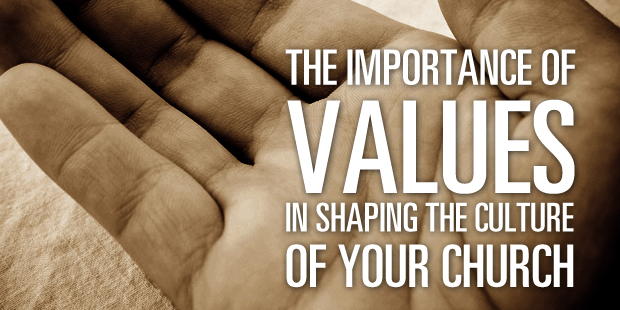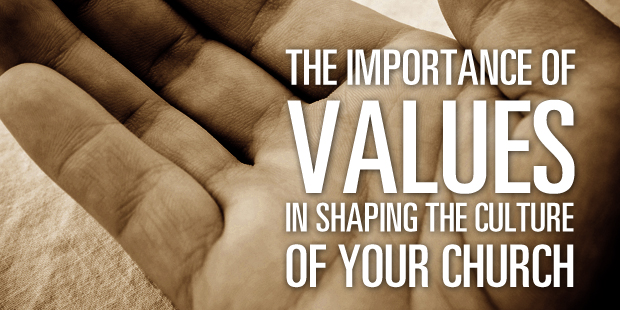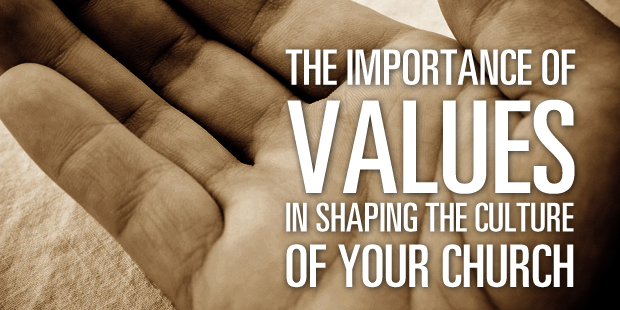
The Importance of Values in Shaping the Culture of Your Church
The Power of a Discipleship Culture
Our visitors commonly ask, “How much staff does it take to run a church of this size?” They’re often surprised to learn it’s less than 400—less than half a percent of the number of people who attend our services. It’s a telling illustration of the power of discipleship. In our experience, because the church is full of disciples, we don’t struggle with volunteer shortages for kid’s ministry, worship leading, ushering, administrative services and other activities. And from this pool of disciples, we are able to raise up future church planters, missionaries and pastors.
Disciples have clear values and don’t need coaxing, intimidation or manipulation to get them to serve. They willingly give of themselves to the work of ministry. They do it because it is valuable to them. It’s their culture. Even more amazing is how discipleship happens at every level of the church.
I recently heard a story about how a 12-year-old girl who serves in our kids’ ministry engaged her next-door neighbor. In time, the girl invited her neighbor to church and also took the responsibility of making her friend a follower of Christ. After her friend received the Lord, she invited her parents to come. Initially, they were reluctant, but they eventually came and are now members of the church. Her father has become a follower of Christ who now makes disciples.
Then there’s the story of a businessman in the city who heard of an opportunity to play his beloved instrument during our Sunday worship. After signing up as a volunteer, he was asked if he had gone through “One to One” with anyone—our starting point for engaging visitors that eventually leads into a small group and the rest of the discipleship process. Today, he plays on Sundays and he, too, makes disciples.
Our church has thousands of similar stories of discipleship. The point I’m trying to make here is that stories like these happen just as a part of our church’s culture. While these two stories centered on Sunday morning, the majority of them take place in the course of people’s day-to-day lives.
Now imagine if your church had a culture of discipleship and that every year 20 percent to 25 percent of these disciples made disciples. At this growth rate, your church could double every 3 1/2 years. This is the power of discipleship.
Developing a Discipleship Culture
Over the last five years we’ve all heard the discussion about Western Christianity’s decline. I tend to think that even as cultural, popular Christianity wanes, a burgeoning of true Christianity is happening—the kind that makes disciples. But to see this growing shift expand, we need to make changes. As I said earlier, the starting point is a change in values among leaders and members because values deal with the heart. As long as we value comfort and convenience, money and materials over our relationship with God and people, nothing much will change.
I like how Kevin York, the executive director of Every Nation Ministries (the churchmovement I’m privileged to be a part of), fleshes out the discipleship and values connection: “As long as you aim for your values, you will most likely hit your vision, mission and programs.”
He explains that having discipleship as our main value allowed us to come up with the right vision, mission and programs. Many discipleship ventures fizzle out in churches and among Christians because they are vision-based, mission-focused and program-driven rather than centered on values.
It’s from our values that we glean the appropriate principles and processes. Let me give you a few examples:
● Financial principles are based on monetary and gold values.
● Corporate principles are based on their founders’ and boards’ values.
● Marketing principles are shaped by customer values.
● Christian principles are founded on what God values.
So what does God value?

Tags: Joey Bonifacio, Values, Vision Frame


















